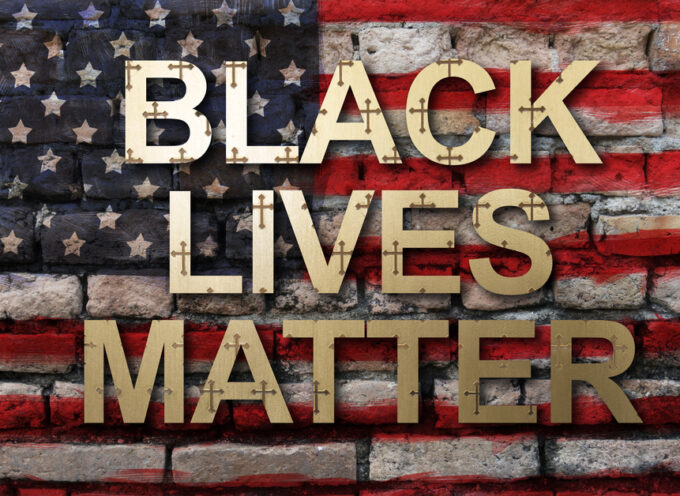Early in the 2016 election cycle, GOP chairman Reince Priebus declared that the GOP was “likely to have the most diverse presidential primary field in history—of either party.” If diversity is considered in terms of the varied ethnic heritages of the presidential primary candidates, he was right. And yet, 90% of the voters in GOP primaries this year have been white.
Reflecting on this reality, Stanford sociologist Corey D. Fields recently argued in the New York Times that “the image of black Republicans that the G.O.P. disseminates may actually dampen enthusiasm for the party–not only among the black electorate in general, but also among black Republicans themselves.”
Fields locates the problem in the fact that many high-profile black Republicans are committed to “colorblind” politics. He gives as examples Ben Carson, Mia Love, and Tim Scott who “acknowledge that being black is part of their life experience but reject the idea that racial identity should orient their political decision making. They often decry efforts, like affirmative action, to address racial inequality explicitly, claiming that such politics undermine black success.”
Colorblind politics, Fields argues, fails to represent race-conscious black Republicans as well as black citizens who might potentially vote Republican. These types of voters are more consciously linked to black communities and leverage their conservative politics to uplift the black community. They support the Republican platform but root their support in the particularity of their black identity. Fields gives the example of school vouchers, which race-conscious black Republicans would support not just for the sake of a free market, but for the empowerment of black parents.
Why should the GOP reject colorblind politics? Fields offers a pragmatic reason: if the GOP doesn’t move beyond colorblind politics, it will continue to lose potential black voters. Its national conventions will continue to look like a sea of melted marshmallows. Fields is right.
But for evangelical Christians, there is also a theological reason. Of all people, Christians should coalesce to move beyond colorblind politics into a new era of color-affirmative politics. Scripture teaches that God’s creational design for our world includes—and invites—unity-in-diversity. He gave each domain of nature an almost infinite diversity of variation. Where can you look in the created world and not see a multiplicity of colors, dimensions, and forms?
Scripture also teaches that Christ will return in order to institute a new political order that is characterized by ethnic unity-in-diversity. We are told that the new political order will consist of persons from every tribe, tongue, people, and nation (Rev 5:9-10) and even cultural treasures from those nations (Rev 21:24). The picture painted by the Bible is that God the Creator loves and affirms his creation in its diversity.
What should the GOP do? First, it should reconceive its platform to make clear that it is attentive and sympathetic to the concerns of black communities. It should address black voters in their particularity as black voters. If not, the GOP will continue to communicate implicitly that one must choose between blackness and conservatism.
Second, it should foster within its own ranks a healthier emphasis on particularity than the sort of “identity politics” that would seek only the interests of its own group. Black, white, and Hispanic communities should feel free to voice their interests within the Republican Party, and to voice those interests in distinctively black, white, or Hispanic ways. But in voicing those interests, they can be communicated in such a way that displays their merit for the common good.
Unity-in-diversity means that, in fact, these interests can be put on full display and at the same time reveal their merit for the common good. Our nation is now more diverse than ever in its history. Republicans will certainly make a tactical error if they do not move beyond colorblind politics. More significantly than that, however, they will fail to do the right thing.
Subscribe
Never miss a post! Have all new posts delivered straight to your inbox.








Your exegesis of Revelation is wrong and sound almost Dominion-ist. Those people from all over the world are worshipping the lamb of God. It doesn’t say anything about politics. I would feel sorry for any non-Christian that would want to be in the Republican party if this were the new religious standard.
Hi Patrick, thank you for commenting. Like you, I am not an Dominion-ist. However, the book of Revelation is deeply political. Jesus reigns over a covenanted people in a great city, the New Jerusalem. That city, and its politic, is what we Christians hope we can be a preview of.
Thanks for composing this. Great thoughts all throughout. It echoes many of the things rambling in my head that I’m way too clumsy to pull together in cohesive way as you’ve done here. May the Lord continue to bless you and your ministry!
Thank you for taking the time to comment, Brian, and for your kind words.
Your usual thoughtful stuff, Dr. Ashford. I agree that the answer isn’t ignore or obsess over racial/cultural differences, but to courageously celebrate them within the community of faith, believing that our faith overrides such differences.
I just read Jesse Washington’s excellent personal journal of the Waco Horror, a 1915 lynching, and the same principle applies. Rather than ignore it (as the city has) or obsess over it, we need to courageously remember such tragedies, knowing that our national character — energized by our faith — can confront such horrors in our history.
Dr. Carvalho, thank you. I like the Waco Horror analogy. Apt.
Interesting article. It discusses something I’ve been thinking about recently and it challenges my paradigm. Thanks for that!
Now to play the contrarian role…
Diverse languages were a punishment instituted by God after the Tower of Babel. And, when the Holy Spirit descended in the book of Acts, the miracle was that everyone could understand each other, though the languages were all different. When I put those together, I draw the conclusions that 1) diversity of language (and therefore the cultural differences that arise from it) is not God’s original intent, and 2) it will be abolished at the end.
If that’s the case, then there may well be “persons from every tribe, tongue, people, and nation,” but I would tend to believe that this new order will be culturally homogenous. We’ll all understand each other and we’ll be united by the heart and will of God. (Exciting!) I don’t know, but I doubt I’ll be identifying based on my skin color, height, nationality, or anything like that.
With that picture, I think the melting pot model of cultural integration still makes more sense. I’m from an area that has all kinds of cultural pockets: Croatians, Slovenians, Serbs, Italians, Germans, Hungarians, Polish, Irish. All came and brought their cultures, but in general all united and integrated into the culture. So while you’ll see a ton of pizza joints and pierogy shops in the area, those places are frequented by descendents of all groups. Plus, we all speak the same language, cheer for the same football team, etc.
I could hash this out more but this is already pretty long. Hopefully I said something coherent enough to merit a response!
Brendan, yes, and thank you. I’ll say this: aside from the origination of languages, Scripture does ascribe normative value to diversity of various types (different colors, different genders, etc.) at the time of creation. Also, Scripture affirms diversity in various ways (diverse types of music and art, for example). And, it tells us that God will received treasures from the kings of the nations, and that there will be a vast and diverse throng of worshipers. So, for me, that’s plenty to carry the argument, even without addressing the languages question. Thanks for taking the time to respond so thoughtfully.
Hi Mr. Ashford! So if as you say color blindness is wrong. Then we should consider skin color etc rather than only character’s content and merit. Who is then right? You or Dr. Martin Luther King Junior? Sorry It can’t be both.
Jeff, hi. Thank you. I think it can be both. Dr. King was asking Americans not to discriminate against the black people because of the color of their skin. I agree with him on that. And what i’m adding to it is that ethnic heritage (which is not the same as skin color, but in some cases coincides) can and should be recognized in a positive way, as the Bible does repeatedly in passages such as Revelationi 5:9.